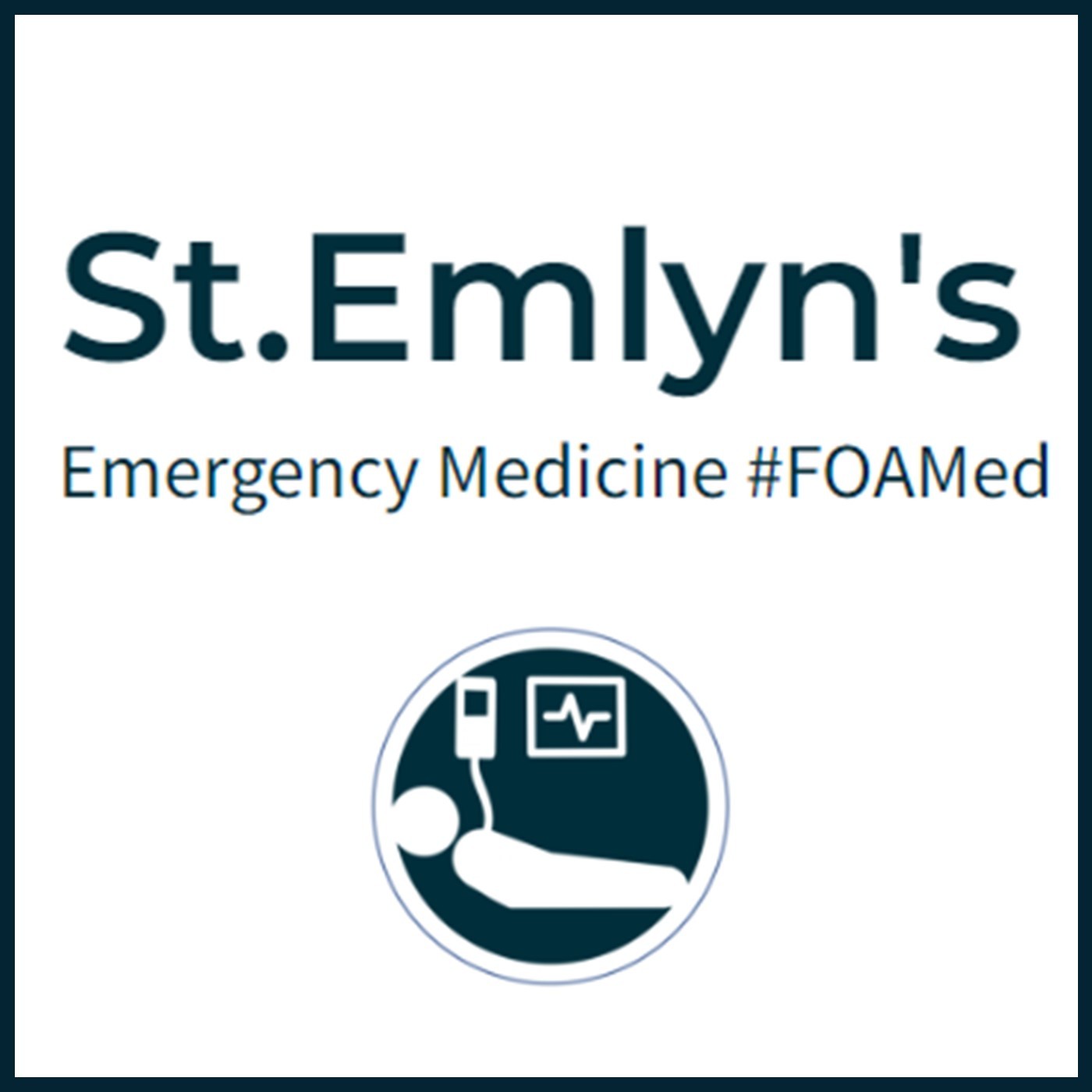
1.3M
Downloads
287
Episodes
A UK based Emergency Medicine podcast for anyone who works in emergency care. The St Emlyn ’s team are all passionate educators and clinicians who strive to bring you the best evidence based education. Our four pillars of learning are evidence-based medicine, clinical excellence, personal development and the philosophical overview of emergency care. We have a strong academic faculty and reputation for high quality education presented through multimedia platforms and articles. St Emlyn’s is a name given to a fictionalised emergency care system. This online clinical space is designed to allow clinical care to be discussed without compromising the safety or confidentiality of patients or clinicians.
Episodes

Sunday Jun 26, 2016
Ep 72 - Wellbeing with Liz Crowe
Sunday Jun 26, 2016
Sunday Jun 26, 2016
Prioritizing Personal Well-being in Healthcare: A Guide for Medical Professionals
Introduction
In the healthcare profession, we often prioritize patient care over our own well-being. However, maintaining personal health is crucial for providing high-quality care. This blog post explores the importance of well-being for healthcare professionals and offers practical strategies to enhance it. Given the high risks of burnout and compassion fatigue in our field, understanding and improving our well-being is essential.
The Multi-faceted Nature of Well-being
Well-being encompasses physical health, mental and emotional stability, and social connections. These aspects are vital for maintaining overall health but are often neglected due to the demanding nature of healthcare work. Common practices like relying on caffeine, sugar, and alcohol provide temporary relief but are unsustainable in the long run.
-
Diet and Nutrition
A balanced diet is fundamental to well-being. Many healthcare professionals struggle with poor dietary habits due to busy schedules, often resorting to fast food or skipping meals. This can lead to energy crashes and dependency on unhealthy snacks. Incorporating a balanced diet rich in proteins, fruits, and vegetables can provide sustained energy and support overall health. Simple changes, such as meal prepping and choosing healthy snacks, can significantly improve dietary habits. -
Physical Activity
Regular exercise is essential for physical and mental well-being. Despite busy schedules, finding time for physical activity is crucial. Exercise reduces stress and anxiety, improves mood, and boosts overall health. Simple activities like walking, home workouts, or gym visits can be easily integrated into daily routines, even in small amounts. -
Mental and Emotional Health
The mental and emotional demands of healthcare work are substantial, often leading to stress and burnout. It is essential to prioritize mental health through practices like mindfulness, therapy, or engaging in hobbies. These activities can provide a mental break and improve emotional resilience, helping professionals cope with the pressures of their work environment.
Practical Strategies for Enhancing Well-being
-
Optimizing Diet
Start by reassessing your eating habits. Prepare nutritious meals that are easy to take to work, like sandwiches with whole grains, lean proteins, and vegetables. Keep healthy snacks available, such as fruits and nuts, to avoid reaching for unhealthy options. Hydration is also key; drink plenty of water throughout the day to maintain energy levels and reduce cravings. -
Reducing Caffeine and Sugar
While caffeine and sugar can provide quick energy, they often lead to dependency and health issues. Gradually reduce caffeine intake by substituting with herbal teas or decaf options. Replace sugary snacks with healthier alternatives, and stay hydrated to help manage cravings and maintain energy levels. -
Incorporating Exercise
Integrate physical activity into your routine, starting with realistic goals. Whether it’s a short walk, a quick home workout, or regular gym sessions, exercise is crucial for maintaining health. Even minimal physical activity can have significant benefits, such as improved mood and energy levels. -
Strengthening Social Connections
Social interactions are important for emotional support and well-being. Sharing breaks with colleagues, even with healthier beverage options, can maintain the social ritual and foster community. Building strong relationships with colleagues provides a support network for sharing challenges and celebrating successes. -
Prioritizing Mental Health
Many organizations offer employee assistance programs, including counseling services. Utilizing these resources can help manage stress and other mental health issues. Practices like mindfulness, journaling, or engaging in creative activities can also aid in managing stress and improving mental clarity.
The Role of Sleep
Sleep is critical for maintaining well-being, especially for those working long hours or night shifts. Developing good sleep hygiene is essential, including consistent sleep patterns and a restful sleep environment. Avoiding stimulants like caffeine before bed can also improve sleep quality, which in turn enhances cognitive function and emotional regulation.
Overcoming Barriers to Well-being
-
Time Constraints
Lack of time is a common barrier to maintaining well-being. However, small, consistent changes can make a big difference. Meal prepping, scheduling exercise, and setting aside time for mindfulness are all practical strategies that can fit into a busy schedule. -
Mindset Shifts
It's important to move away from an all-or-nothing mentality. Focus on gradual, sustainable changes rather than attempting to overhaul your entire lifestyle at once. Start with small, manageable goals and adjust them as you progress. -
Seeking Support
A support network is invaluable for maintaining well-being. Whether it’s through friends, family, or professional counselors, sharing your journey can provide motivation and accountability. Colleagues can also offer support and understanding, given the unique challenges of the healthcare profession.
Long-term Benefits
Prioritizing well-being offers numerous benefits, including enhanced capacity for compassionate care, reduced risk of burnout, and a healthier work-life balance. Modeling healthy behaviors can also positively influence colleagues and patients, fostering a culture of well-being within the workplace.
Developing a Personal Well-being Plan
Creating a personal well-being plan involves setting realistic goals and making gradual changes. Assess your current habits and identify areas for improvement. Incorporate elements of physical activity, healthy eating, mental and emotional health, and social connections into your plan. Track your progress, celebrate small victories, and adjust your plan as needed.
Conclusion
As healthcare professionals, taking care of ourselves is crucial to providing the best care for our patients. By prioritizing personal well-being, we can enhance our physical and mental health, improve our capacity for compassionate care, and enjoy a more fulfilling career. Start by making small changes today and share your journey with us at St. Emlyn's. Remember, a healthier you means better care for your patients.

No comments yet. Be the first to say something!